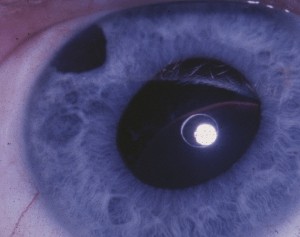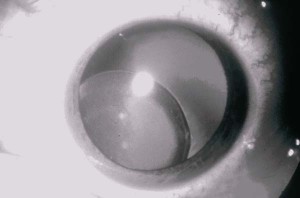A rare inherited disease, Homocystinuria gives rise to serious health issues among the inhabitants of US. Get detailed information about this progressive disease, including its causes, symptoms, diagnosis and treatment.
Homocystinuria Definition
Page Contents
- 1 Homocystinuria Definition
- 2 Homocystinuria ICD 9 Code
- 3 Homocystinuria Synonym
- 4 Homocystinuria Incidence
- 5 Homocystinuria Types
- 6 Homocystinuria Causes
- 7 Homocystinuria Symptoms
- 8 Homocystinuria Diagnosis
- 9 Homocystinuria Treatment
- 10 Homocystinuria Prognosis
- 11 Homocystinuria during Pregnancy
- 12 Homocystinuria Life Expectancy
- 13 Homocystinuria Complications
- 14 Homocystinuria Prevention
It is a hereditary amino acid disorder characterized by an inability of the body to break down the amino acid Methionine from the food that it consumes. The condition is similar to Methylmalonic Acidemia (MMA), Phenylketonuria (PKU) and Tyrosinemia disorders. It is an autosomal recessive trait, meaning a new born baby must inherit a copy of the defective gene from either parent to be affected with this syndrome. This inborn defect of methonine metabolism arises due to the lack of a hepatic enzyme called Cystathionine b-synthase, which is solely responsible for converting Methonine to Homocyst. This disease causes multi-systematic problems of the muscles, connective tissues, cardiovascular system and the CNS.
Homocystinuria ICD 9 Code
The ICD9 code for this condition is 270.4.
Homocystinuria Synonym
The disorder is also known by the names Cystathionine Beta Synthase Deficiency and HCU.
Homocystinuria Incidence
The common form of this disease occurs in 1 out of every 200,000 to 335,000 people all over the world. In Ireland, this disease is found to arise in 1 out of every 65000 people, while in Germany it occurs in 1 in every 17800 people. The uncommon form of this syndrome affects only a small number of people worldwide.
Homocystinuria Types
This disease is basically categorized under common and less common form, which is differentiated on the basis of their sign and genetic cause.
Picture 1 – Homocystinuria
Common Form
The general form of HCU is distinguished by:
- Displacement of the lens at the exterior region of the eye
- Nearsightedness
- Skeletal anomaly
- Abnormal blood clotting risk
- Fragile bones which can be fractured easily ( osteoporosis)
- Learning difficulties
- Delayed growth
Less Common Form
This form of Cystathionine Beta Synthase Deficiency is characterized by:
- Intellectual disability
- Seizures
- Inability to gain weight at a normal pace
- Failure to grow and develop at the expected speed
- Megaloblastic Anemia (blood disorder)
- Movement problems
Homocystinuria Causes
The human body absorbs protein from the food that it consumes. The protein is broken down into small components called amino acids. These amino acids are consumed with the help of some special enzymes present in the body. HCU occurs due to the absence or inefficient working of these special enzymes, known as Cystathionine Beta-Synthase. When the CBS enzyme is not working properly, homocystine and methionine acids develop in the blood stream and give rise to HCU.
Homocystinuria Symptoms
A number of symptoms serve as warning signs and indicate the presence of this condition. Some of these common indicators include:
- Scoliosis
- Sunken chest
- Mental retardation
- Dislocation of lens of eye
- Sparse hair
- Thromboembolic accidents
- Glaucoma
- Limited joint mobility
- High arched foot
- Dolichostenomelia
- Crowded teeth
- Mitral valve prolapsed
- Pigeon-chest
- Inguinal hernia
- Chest anomaly
- Myelinopathy
- Ectopia lentis
- High arched palate
- Kyphoscoliosis
- Long thin fingers
- Fine brittle hair
- Arachnodactyly
- Malar flush
- Livedo reticularis
- Marfanoid habitus
- Drooling
- Thromboembolic accidents
- Lens dislocation
- Osteoporosis
- Slender skin
- Kyphosis
- Clumsiness
- Genu valgum
- Acute psychoses
- Delayed speech development
- Dyslalia
- Pancreatitis
- Homocystinuria
- Methioninuria
- Skeletal abnormalities
- Myopia
- Fair hair
- Fragile hair
- Seizures
Homocystinuria Diagnosis
Presence of HCU in urine is common among the patients of this syndrome. The CBS enzyme movement can be analyzed in various tissues, including lymphocytes, fibroblasts, amniocytes and liver. Some of the common diagnostic tests performed on people displaying the signs of HCU involve:
- Liver biopsy
- Genetic testing
- Skeletal X-ray
- Enzyme assay
- Standard ophthalmic exam
- Skin biopsy
The tests conducted for Cystathionine Beta Synthase Deficiency among infants aims at determining the presence of high amounts of methionine (MET). If the test results turn out to be positive, a urine or blood exam can be performed to confirm the diagnosis. The abovementioned tests can help determine the presence of various sulfurous amino acids, such as Homocystine, in the body of a patient.
Homocystinuria Treatment
Health care providers usually cure the condition by addressing the metabolism rate and taking care of the diet of patients. Treatment should be initiated as soon a child displays the symptoms of this disorder.Severe health issues, such as mental retardation, require immediate medical treatment to be cured.
Some of the main treatment options for infants affected with HCU syndrome include:
Low Methionine Diet
Most children affected with HCU should adhere to a special low-methionine diet. Suffering children are fed with foods which have low methionine content. They should avoid foods like:
- Cow milk
- Meat
- Eggs
- Cheese
- Flour
- Nuts
- Dried beans
- Peanut butter
- Breads
- Pastas
The diet of an affected child should also depend on other factors like age, blood test result and weight. It should be followed by a patient all through his/her life.
Medical Foods
In a few cases, some children are provided with special medical foods which act as a replacement for milk. This milk supplies an infant with essential nutrients that take care of the methionine and homocystine levels in the body.
Supplements
A number supplements are given to HCU affected patients. If taken regularly, these supplements can prevent a patient from various problems such as mental abnormalities, behavior problems, blood clotting and visual difficulties. A few supplements can also reduce the amount of homocystine in the blood stream and minimize the risk of blood clots. The supplements typically recommended to HCU patients include:
- Betaine
- Vitamin B6
- Folic acid
- Vitamin B12
- L-cystine
Urine and Blood Samples
Daily blood and urine tests help determine the amino acid levels in the body. The diet of patients should be adjusted depending on the blood test results.
Homocystinuria Prognosis
Although there is no permanent cure for this syndrome, Vitamin B6 helps people affected with the disorder and provides great relief. An early diagnosis of this disease can help prevent intellectual disability and various other physical complications arising from this disorder.
Homocystinuria during Pregnancy
Pregnancies should be monitored by special doctors and complete care of the mother should be taken. Parents may decide to test during pregnancy or wait till the child is born to find out the existence of HCU syndrome in the baby.
Homocystinuria Life Expectancy
Patients with HCU may have a longer life if they are given proper treatment in time. According to researchers, 1/4 of patients affected with this syndrome tend to die before the age of 30 due to complications arising out of this condition.
Homocystinuria Complications
Blood clot is one of the most serious complications arising due to this syndrome. Such clots can prove to be extremely life-threatening. In a few cases, patients suffer from dislocated eye lenses that blur the vision. In some cases, heart attack may also occur as a complication of this disorder.
Homocystinuria Prevention
Couples who wish to have a baby in future, and already have one HCU child or a family history of the disorder, should undergo genetic counseling to prevent their child from developing HCU.
Picture 2 – Homocystinuria Image
Homocystinuria is a complicated disease occurring in many people. If any of your family members shows the symptoms of this disorder, call your health care provider on an immediate basis. This disease should not be neglected and should be treated with utmost care. If your family has a background of HCU syndrome, seek the advice of your doctor for family planning.
References:
http://www.ncbi.nlm.nih.gov/pubmedhealth/PMH0002179/
http://ghr.nlm.nih.gov/condition/homocystinuria
http://www.patient.co.uk/doctor/Homocystinuria.htm
http://www.rarediseases.org/rare-disease-information/rare-diseases/byID/463/viewAbstract


